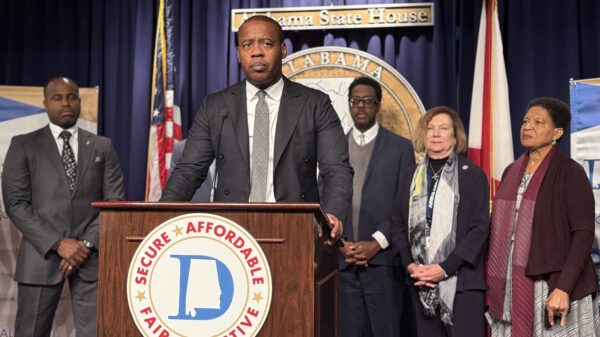When the Supreme Court released its final decisions of this term on Friday, it announced that Louisiana v. Callais would be “restored to the calendar for reargument.”
Justice Clarence Thomas dissented, writing that “Congress requires this Court to exercise jurisdiction over constitutional challenges to congressional redistricting, and we accordingly have an obligation to resolve such challenges promptly.”
Filed against the state of Louisiana by “non-African American” voters, Louisiana v. Callais challenges the state’s court-mandated redistricting on the grounds that it was an unconstitutional racial gerrymandering. Louisiana had adopted a congressional map with two majority Black districts after the Supreme Court issued its decision in Allen v. Milligan while the state was contesting a similar lawsuit arguing its map violated the Voting Rights Act.
“Unlike what the Alabama legislature did and keep trying to fight and refusing to draw a second majority Black district and being forced to draw it by the court, Louisiana agreed,” explained Caren Short, legal director of the League of Women Voters of the United States.
“Along came a group of self-described non-African American voters,” she recounted. “They sued the state of Louisiana saying that when the state of Louisiana considered race in drawing the second majority Black district—which of course you have to do when you’re drawing a second district to get Black voters an adequate opportunity to elect the candidate of choice—they said that that violated these non-African American voters’ rights under the 14th Amendment.”
The state of Louisiana has contested the non-African American plaintiffs’ claims while remaining skeptical about the initial rulings that required redistricting in the first place.
During oral arguments in March, Louisiana’s solicitor general asked the Supreme Court to overturn an earlier district court ruling that race had improperly predominated the redistricting process, saying “if the Court holds otherwise, then respectfully, I don’t know what this Court’s voting cases mean.”
Alabama Attorney General Steve Marshall said in May that the Supreme Court’s ruling on Louisiana v. Callais could “absolutely have an impact on what’s going on here in Alabama” depending on the scope of the decision.
Marshall also signed Alabama onto an amicus brief in the case criticizing section 2 of the Voting Rights Act. The brief called for the Supreme Court to reject the “atextual and standardless approach” that led the courts to find Louisiana needed to adopt a new map in the first place.
Short, however, said in her interview with APR that she wasn’t overly worried about a sweeping ruling that could reshape voting rights precedents.
“The Supreme Court had stood firm in upholding section 2 and its requirement to protect Black voters, communities of color, and the requirement to eradicate racial discrimination in voting,” she stated, adding that Milligan v. Alabama appears “extremely robust.”
Many of the parties involved in Louisiana v. Callais stated soon after it was announced a decision would not be forthcoming that they’ll be prepared to argue their case before the court again next term, still hopeful for an outcome in their favor.
Louisiana Attorney General Liz Murrill wrote in a statement to the Louisiana Illuminator that “although we hoped for a decision this term, we welcome a further opportunity to present argument to the Court regarding the state’s impossible task of complying with the Court’s voting precedents.”
Cecillia Wang, national legal director for the American Civil Liberties Union, similarly wrote in a statement on Friday that the organization “will be back next term to once again defend the new map and the representation Black voters deserve.”












































